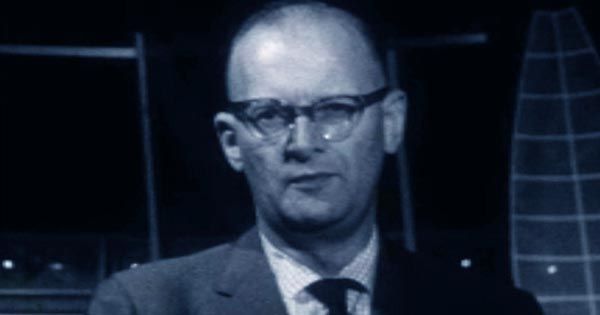Sir Arthur C. Clarke, the author of 2001: A Space Odyssey and a self-proclaimed futurist had a lot of ideas about how technology might evolve in the future. Despite the fact that the revolutionary writer lived at a period when computers were a mysterious, space-age technology and the floppy disk had only recently been invented, he spoke confidently about social media, instant messaging, online commerce, and much more.
Now, an interview from 1976 in which he discussed the future reveals that he was highly accurate and predicted a large number of things correctly.
The clip was shot at an AT&T and MIT meeting on technology and futurism in 1976. The interview, which was filmed for an edition of Bell System magazine and attended by famous scientists and thinkers, was filmed for an episode of Bell System magazine, in which Clarke had an open conversation about the future of communications. He goes on to detail numerous things that we now take for granted, like texting, Amazon books, and online grocery shopping; traveling around the world for enjoyment rather than necessity or business; communication satellites; and even the gradual abolition of paper journalism as technology takes its place.
Of course, there were other aspects he didn’t get right (or haven’t developed yet). Clarke felt that in the future, the world would be in a single timezone, and that commuting would be obsolete. Let’s hope that one is correct.
Clarke was a superb inventor as well as a world-famous author. Clarke independently developed the first concept for a communications satellite in 1945, decades before it became a reality. He was also an enthusiastic scuba diver who discovered the Koneswaram Temple’s submerged remains while scuba diving.
Stanley Kubrick created and directed the 1968 epic science fiction film 2001: A Space Odyssey. Kubrick and Arthur C. Clarke collaborated on the screenplay, which was inspired by Clarke’s 1951 short tale “The Sentinel” and other short works. The screenplay was partially created concurrently with the novel, which was released after the film’s debut. Following the discovery of an alien monolith, the film follows a voyage to Jupiter with the sentient computer HAL. Existentialism, human evolution, technology, artificial intelligence, and the potential of extraterrestrial life are among the issues explored.
The film is known for its scientifically realistic depiction of space flight, as well as its groundbreaking visual effects and cryptic imagery. Kubrick eschewed traditional cinematic and narrative tactics; language is hardly utilized, and long stretches are supported solely by music. The soundtrack includes compositions by artists such as Richard Strauss, Johann Strauss II, Aram Khachaturian, and György Ligeti, among others.
















